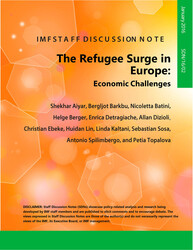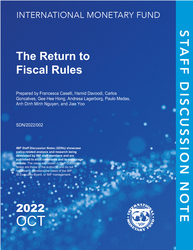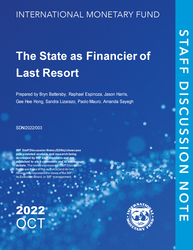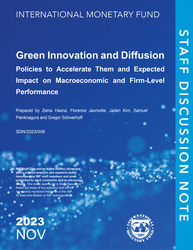
The Refugee Surge in Europe
Economic Challenges
Against the background of political turmoil in the Middle-East, Europe faces an unprecedented surge in asylum applications. In analyzing the economic impact of this inflow, this paper draws from the experience of previous economic migrants and refugees, mindful of the fact that the characteristics of economic migrants can be different from refugees. In the short-run, additional public expenditure will provide a small positive impact on GDP, concentrated in the main destination countries of Germany, Sweden and Austria. Over the longer-term, depending on the speed and success of the integration of refugees in the labor market, the increase in the labor force can have a more lasting impact on growth and the public finances. Here good policies will make an important difference. These include lowering barriers to labor markets for refugees, for example through wage subsidies to employers, and, in particular, reducing legal barriers to labor market participation during asylum process, removing obstacles to entrepreneurship/self-employment, providing job training and job search assistance, as well as language skills. While native workers often have legitimate concerns about the impact of immigrants on wages and employment, past experience indicates that any adverse effects are limited and temporary.
Publication date: January 2016
ISBN: 9781513552590
$10.00
Add to Cart by clicking price of the language and format you'd like to purchase
Available Languages and Formats
| English |
Prices in red indicate formats that are not yet available but are forthcoming.
Topics covered in this book
This title contains information about the following subjects.
Click on a subject if you would like to see other titles with the same subjects.
Labor , Migration , Refugees , Labor Market , asylum , asylum seekers , refugee , International Migration , General , Demographic Trends and Forecasts
Summary
Copyright © 2010 - 2024
Powered by:
AIDC



